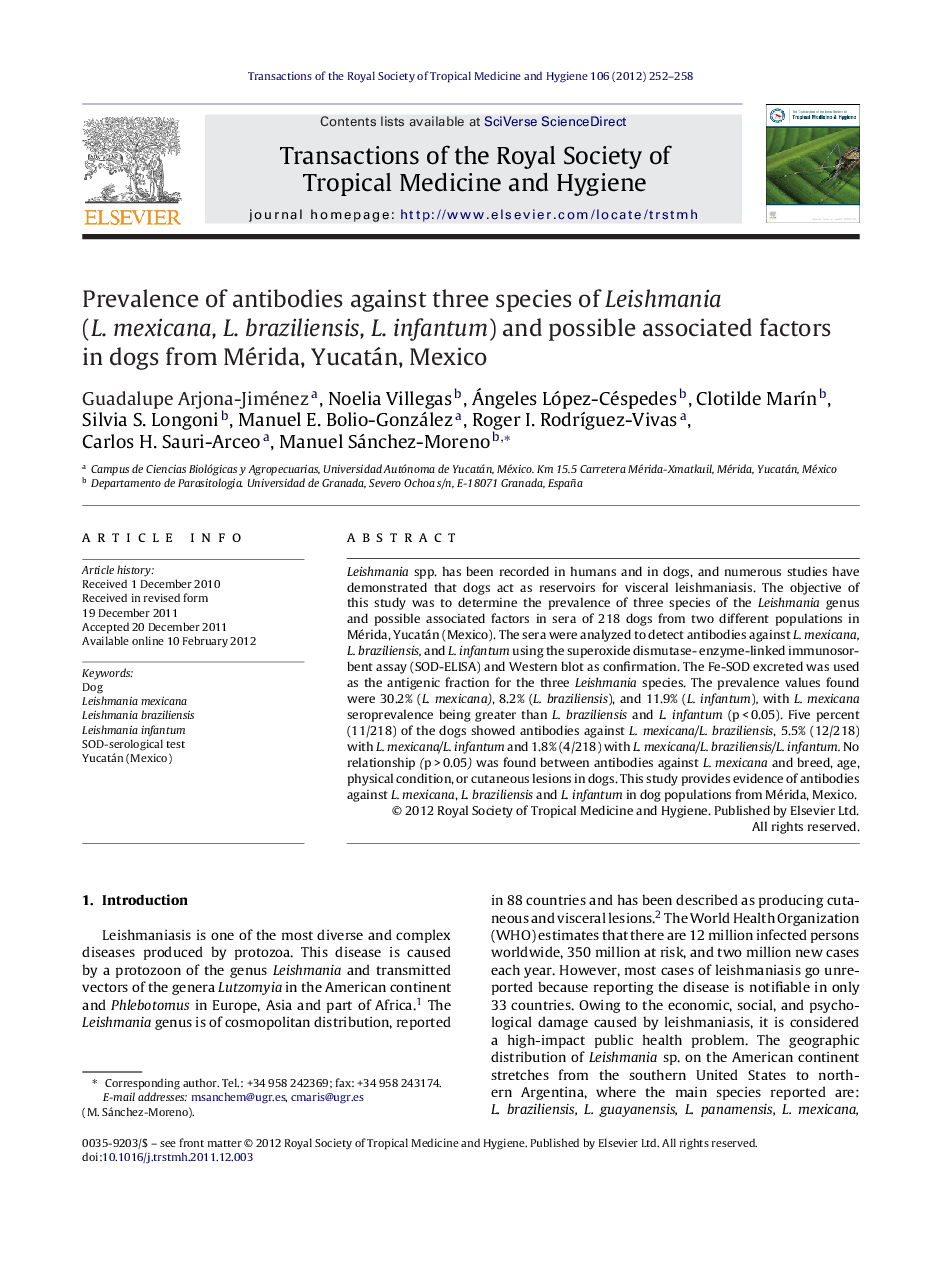| Article ID | Journal | Published Year | Pages | File Type |
|---|---|---|---|---|
| 3420453 | Transactions of the Royal Society of Tropical Medicine and Hygiene | 2012 | 7 Pages |
Abstract
Leishmania spp. has been recorded in humans and in dogs, and numerous studies have demonstrated that dogs act as reservoirs for visceral leishmaniasis. The objective of this study was to determine the prevalence of three species of the Leishmania genus and possible associated factors in sera of 218 dogs from two different populations in Mérida, Yucatán (Mexico). The sera were analyzed to detect antibodies against L. mexicana, L. braziliensis, and L. infantum using the superoxide dismutase- enzyme-linked immunosorbent assay (SOD-ELISA) and Western blot as confirmation. The Fe-SOD excreted was used as the antigenic fraction for the three Leishmania species. The prevalence values found were 30.2% (L. mexicana), 8.2% (L. braziliensis), and 11.9% (L. infantum), with L. mexicana seroprevalence being greater than L. braziliensis and L. infantum (p < 0.05). Five percent (11/218) of the dogs showed antibodies against L. mexicana/L. braziliensis, 5.5% (12/218) with L. mexicana/L. infantum and 1.8% (4/218) with L. mexicana/L. braziliensis/L. infantum. No relationship (p > 0.05) was found between antibodies against L. mexicana and breed, age, physical condition, or cutaneous lesions in dogs. This study provides evidence of antibodies against L. mexicana, L. braziliensis and L. infantum in dog populations from Mérida, Mexico.
Related Topics
Life Sciences
Immunology and Microbiology
Applied Microbiology and Biotechnology
Authors
Guadalupe Arjona-Jiménez, Noelia Villegas, Ángeles López-Céspedes, Clotilde MarÃn, Silvia S. Longoni, Manuel E. Bolio-González, Roger I. RodrÃguez-Vivas, Carlos H. Sauri-Arceo, Manuel Sánchez-Moreno,
